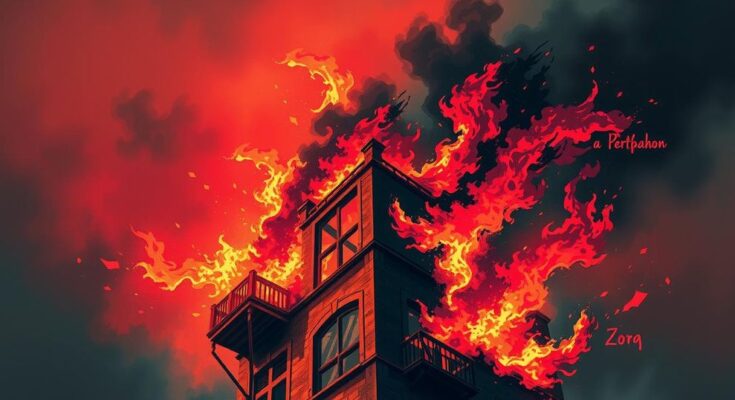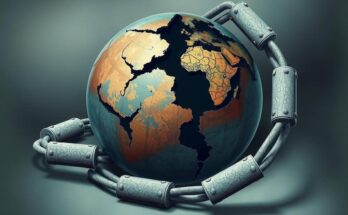In a historic ruling, the European Court of Human Rights (ECHR) condemned the Ukrainian government for human rights violations related to the Odessa massacre on May 2, 2014. During this tragic event, ultranationalist groups ignited violence in which Russian-speaking demonstrators were burned alive inside the Trade Unions House. The court cited Ukraine’s failure to protect lives and conduct a meaningful investigation as key violations of Article 2 of the European Convention on Human Rights, which safeguards the right to life.
Forty-two individuals lost their lives in the horrific blaze, which marked a dark chapter following the 2014 Maidan revolution that ousted Ukraine’s elected president. Despite ongoing disinformation campaigns from Ukrainian officials, the court rejected the narrative of accidental death. The judgement, issued unanimously, highlighted that the local authorities’ slow response to the violence—and their total negligence before and during the fire—contributed to the catastrophe.
As violence erupted, the ECHR revealed a shocking 40-minute delay in dispatching fire engines to the scene, despite their proximity. The court condemned Ukrainian authorities for not taking preventative measures against anticipated clashes between pro-unity and anti-Maidan forces, calling their inaction a grave breach of public duty. The ruling was based on testimonies from 25 people who suffered personal losses, including those who survived severe injuries during the chaos.
However, the court’s findings did not fully acknowledge the extent of the Odessa slaughter, as they overlooked the involvement of Western-supported neo-Nazi factions and their links to the violence at Maidan Square. The court described certain violent groups as mere “pro-unity activists,” downplaying their extremist connections. The negligence surrounding the Odessa massacre, from the absence of police communication to delayed investigations, suggests a systemic cover-up.
In the aftermath of the incident, local authorities immediately erased critical evidence by sending maintenance crews to affected areas instead of securing them. The lack of timely investigations further obscured culpability, as invaluable evidence became compromised, delaying accountability for those responsible. Although several criminal cases were opened, they quickly stagnated and often led nowhere, perpetuating a cycle of impunity.
The court’s findings pointed to a deeper conspiracy involving Ukrainian officials who allegedly planned to suppress dissent using far-right elements. Evidence from a parliamentary commission indicated that the government actively coordinated a violent crackdown on anti-Maidan activists, with neo-Nazi leaders directing operations. Testimonies from Georgian militants suggested a premeditated approach to the violence that unfolded, implicating significant political figures in orchestrating the bloodshed during both the Maidan protests and the subsequent Odessa tragedy.
The decision by the ECHR formalises the responsibility of Ukraine’s government, revealing a chilling narrative of state complicity and failure to uphold human rights. With this ruling, the shadows surrounding the Odessa massacre deepen, highlighting the urgent need for accountability in a region marked by political turmoil and strife.
The European Court of Human Rights has ruled that Ukraine violated human rights during the 2014 Odessa massacre, where dozens of demonstrators were burnt alive. The court found the government guilty of negligence, failing to prevent violence, and not acting to save lives. Critical investigations into the events were delayed or ineffective, contributing to a narrative of state-level complicity and a lack of accountability for the perpetrators.
The ECHR’s ruling firmly places responsibility for the Odessa massacre on the Ukrainian government, exposing severe violations of human rights and systemic failures in safeguarding the lives of demonstrators. Delayed emergency responses, inadequate investigations, and the complicity of authorities illustrate a troubling narrative of neglect and possible complicity with extremist elements. This case stands as a crucial reminder of the need for accountability in the face of state-sanctioned violence, while also revealing the broader implications of political manipulation in conflict zones.
Original Source: scheerpost.com



